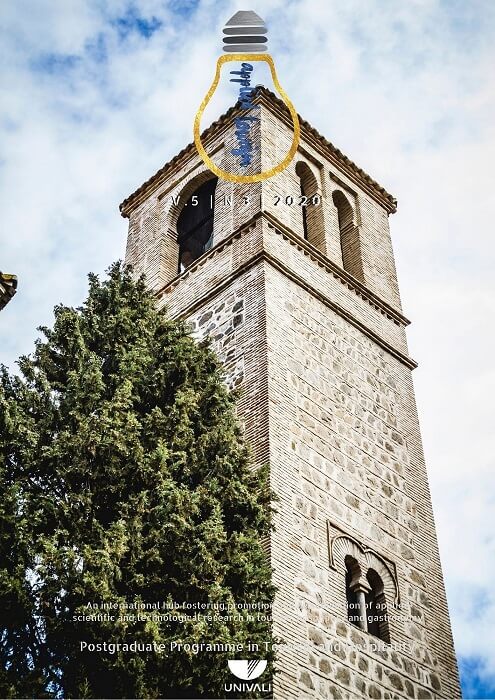

In large part, attempts to understand tourism produce inadequate typologies that, in the desire to operationalize the phenomenon, hinder the clarity of the concept and encourage the ill-use of tourist destinations. It is in this way, in the context of globalization that sexual exploitation by tourism arises, associated with the exploitation of under ages in situations of social vulnerability, configure a complex approach to the term sexual tourism. In that framework, this article was elaborated with the objective to analyze the theoretical discussion of the term sexual tourism portrayed in the training courses for multipliers of the Project for the Prevention of the Sexual Exploitation of Children and Adolescents in Tourism of the Ministry of Tourism, in partnership with the Center of Excellence in Tourism of the University of Brasília in the light of the complexity of tourism through the participating subjects - the multipliers. The study adopted the research action and the dialectic method to investigate the level of understanding of the acquired knowledge from these trained actors in the different Brazilian regions, after the institutional training received in the years 2016 to 2017, with the perspective of pointing out possible ways to approach new content that allows the rereading of what may be sex tourism, fundamental to the most responsible practices of tourism professionals.




BARRETO, M. (2000). Turismo e legado cultural: as possibilidades do planejamento. São Paulo: Papirus.
BRANDÃO, C. R. (1997). Thinking about practice. São Paulo: Edições Loyola.
DEMO, P. (2000). Methodology of scientific knowledge. São Paulo: Atlas.
GASTAL, S.; MOESCH, M. M. (2007). Tourism, public policies and citizenship. São Paulo: ALEPH.
GOODWIN, H. (2005). Responsible tourism and the market. Occasional Paper, no. 4. November, ICTR.
GOODWIN, H. (2009). Ten years of responsible Tourism: an assementin. FONT, X.; GOODWIN, H. (Orgs.) Progress in responsible tourism. v.2, Oxford.
KRIPPENDORF, J. (1989). Sociology of tourism for a new understanding of leisure and travel. Rio de Janeiro: Editora Civilização S.A.
LEAL, M. L. P. (2001). Research on trafficking in women, children and adolescents for the purpose of commercial sexual exploitation in Brazil. Brasília: CECRIA.
MAFFESOLI, M. (2001). On nomadism: postmodern wanderings. Rio de Janeiro: Record.
MINISTRY OF TOURISM (2009). Strategic proposal for the 2014 World Cup tourism organization in Brazil. Brasília.
MOESCH, M. M. (2002). The production of tourist knowledge. São Paulo: Contexto.
MORAES, M. C. (2000). The Emerging Educational Paradigm. São Paulo: Papirus.
OLIVEIRA, A. P. (2000). Tourism and development: planning and organization. (3nd ed.). São Paulo: Atlas.
ROSENO, R. (2006). Brief reflections on the relationship between tourism, childhood and youth in Brazil. Social tourism: dialogues of tourism: a journey of inclusion. Rio de Janeiro: Ministry of Tourism/Brazilian Institute of Municipal Administration.




Derechos de autor 2024 Elissélia Keila Ramos Leão Paes, Marutschka Martini Moesch, Alessandra Santos dos Santos
Esta obra está bajo una licencia internacional Creative Commons Atribución-CompartirIgual 4.0.






Uma plataforma internacional com a finalidade de promover e disseminar a pesquisa científica e tecnológica aplicada em turismo, hospitalidade e gastronomia.

